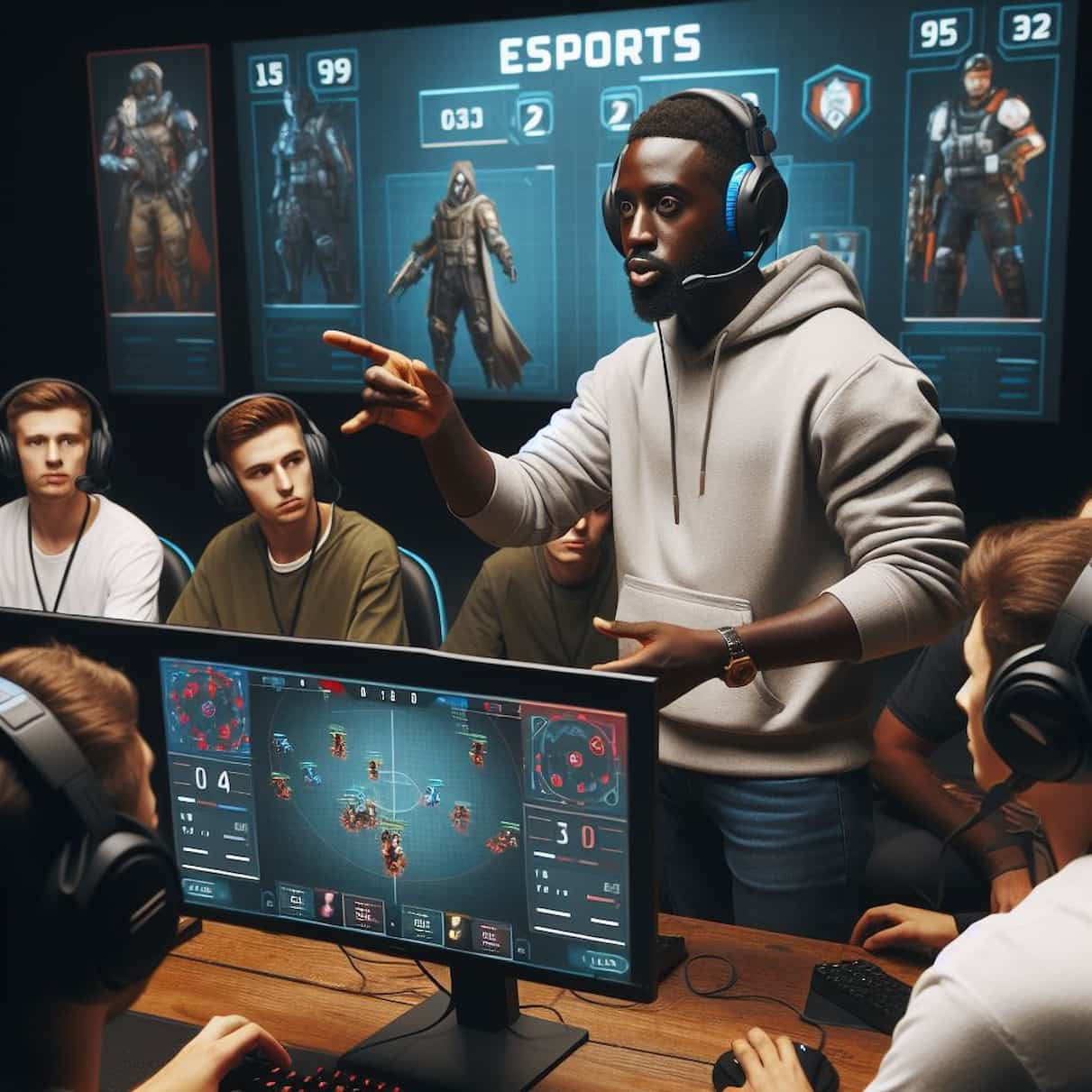Are you ready to step into the world of esports coaching and make a difference in players’ lives? Whether you’re a seasoned gamer or a passionate enthusiast, understanding the key components of effective coaching is essential for success. In this comprehensive guide, we’ll explore the essentials of esports coaching, effective coaching strategies, different types of coaches, and the training process for esports players.
What Do You Need for Esports Coaching?
To excel in esports coaching, you’ll need:
- Expertise: Deep understanding of the game, including mechanics, strategies, and meta.
- Communication Skills: Clear and effective communication to convey strategies and provide feedback.
- Analytical Mindset: Ability to analyze gameplay, identify areas for improvement, and develop strategies.
- Leadership Abilities: Strong leadership skills to guide and motivate players.
- Adaptability: Flexibility to adjust coaching techniques based on individual player needs and team dynamics.
How to Coach Esports Effectively?
- Personalized Approach: Tailor coaching strategies to individual player strengths, weaknesses, and learning styles.
- Clear Communication: Communicate strategies, feedback, and goals effectively to ensure understanding and alignment.
- Positive Reinforcement: Provide constructive feedback and encouragement to motivate players and foster a positive learning environment.
- Continuous Learning: Stay updated on game updates, meta shifts, and coaching techniques to provide valuable insights and guidance.
- Goal Setting: Set specific, achievable goals for players and track progress to drive improvement and motivation.
Different Types of Coaches in Esports:
- Strategy Coach: Develops game strategies, analyzes opponent strategies, and devises counter-strategies.
- Mental Coach: Focuses on the psychological aspects of gaming, helping players manage stress, maintain focus, and build confidence.
- Analyst Coach: Analyzes gameplay footage, identifies patterns, and provides data-driven insights to improve performance.
- Player Development Coach: Works with individual players to improve skills, adaptability, and overall gameplay.
What Does a Strategic Coach Do in Esports?
A strategic coach in esports is responsible for developing overarching game strategies, analyzing opponent strategies, and devising counter-strategies to outmaneuver opponents. They work closely with the team to ensure strategic alignment and adaptability during gameplay.
Qualities of an Esports Coach:
- Game Knowledge: Deep understanding of the game mechanics, strategies, and meta.
- Communication: Clear and effective communication skills to convey strategies and provide feedback.
- Analytical Thinking: Ability to analyze gameplay data and identify areas for improvement.
- Leadership: Strong leadership skills to guide and motivate players towards success.
- Adaptability: Flexibility to adjust coaching techniques based on individual player needs and team dynamics.
How Are Esports Players Trained?
Esports players are trained through:
- Practice Sessions: Regular practice to refine mechanics, strategies, and teamwork.
- Coaching: Guidance from experienced coaches to improve gameplay, decision-making, and communication.
- Scrimmages and Tournaments: Participation in scrimmages and tournaments to apply learned skills in competitive environments.
- Self-Study: Independent study of gameplay footage, professional matches, and meta trends to gain insights and improve performance.
What Are the Four Types of Coaching?
The four types of coaching are:
- Directive Coaching: Coach provides specific instructions and guidance to achieve desired outcomes.
- Facilitative Coaching: Coach facilitates player-led learning and development through questioning and reflection.
- Autocratic Coaching: Coach makes decisions and directs players without input or collaboration.
- Democratic Coaching: Coach involves players in decision-making and encourages collaboration and autonomy.
What Are the Different Levels of Coaching?
The four different levels of coaching are:
- Novice Level: Entry-level coaching with basic skills and knowledge.
- Intermediate Level: Developing coaching skills and gaining experience.
- Advanced Level: Mastering coaching techniques and strategies, achieving proficiency.
- Expert Level: Recognized as a top-tier coach, with extensive experience and expertise in the field.
5 Esports Examples:
- League of Legends (LoL)
- Counter-Strike: Global Offensive (CS:GO)
- Dota 2
- Overwatch
- Fortnite
What Is a Performance Coach in Esports?
A performance coach in esports focuses on optimizing player performance through physical and mental conditioning, nutrition, sleep management, and stress reduction techniques. They help players maximize their potential and maintain peak performance during competitions.
How Do Esports Teams Train?
Esports teams train through:
- Regular Practice Sessions: Scheduled practice sessions to refine skills, strategies, and teamwork.
- Scrimmages: Practice matches against other teams to simulate competitive environments and test strategies.
- Coaching and Feedback: Guidance from coaches, VOD reviews, and feedback sessions to identify areas for improvement.
- Physical and Mental Conditioning: Focus on physical fitness, mental resilience, and stress management to maintain peak performance.
Tips for a Good Coaching Session:
- Preparation: Plan coaching sessions in advance, setting clear goals and objectives.
- Engagement: Keep players engaged through interactive discussions, exercises, and activities.
- Feedback: Provide constructive feedback and encouragement to motivate players and drive improvement.
- Adaptability: Be flexible and adapt coaching techniques based on player responses, needs, and progress.
- Follow-Up: Follow up with players after the session to reinforce learning, track progress, and address any concerns.
In conclusion, effective esports coaching requires a combination of expertise, communication skills, adaptability, and a commitment to continuous learning and improvement. By understanding the different types of coaches, coaching strategies, and training methods, coaches can empower players to reach their full potential and achieve success in the competitive world of esports.














